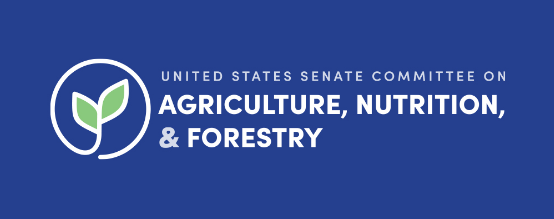Funding for Carbon Sequestration in the Inflation Reduction Act Could Mean Funding for Compost Use
Print this Article | Send to Colleague
 The Senate Committee on Agriculture, Nutrition and Forestry made a major investment in carbon sequestration in agricultural soils in the recently-passed Inflation Reduction Act, a move that could translate into funds for compost use as a conservation practice as well as technical assistance for practices that capture carbon in soils.
The Senate Committee on Agriculture, Nutrition and Forestry made a major investment in carbon sequestration in agricultural soils in the recently-passed Inflation Reduction Act, a move that could translate into funds for compost use as a conservation practice as well as technical assistance for practices that capture carbon in soils.
The act, passed the Senate Sunday and is now before the House of Representatives.
More than $20 billion is dedicated to programs such as the EQUP program (which funds the new Natural Resources Conservation Service Soil Carbon Amendment 336, the conservation practice funding compost use on farms) and $1 billion in technical assistance funding for the NRCS to implement this program and others that focus on climate change mitigation.
“This action by the Senate is a huge step forward in regenerative practices that will draw down carbon by sequestration, and compost is part of that prescription,” said Frank Franciosi, executive director of the US Composting Council. “We hope the House takes this up quickly and retains this significant level of funding.”
See Excerpts from the bill below related to carbon sequestration:
COMMITTEE ON AGRICULTURE, NUTRITION, AND FORESTRY
Funding for the and the Conservation
…
(iii) the funds shall be available for 1 or more agricultural conservation practices or enhancements that the Secretary determines directly improve soil carbon, reduce nitrogen losses, or reduce, capture, avoid, 551 ERN22410 5DM S.L.C. 1 or sequester carbon dioxide, methane, or nitrous oxide emissions, associated with agricultural production;
(2) to carry out, using the facilities and authorities of the Commodity Credit Corporation, the conservation stewardship program under subchapter 7 B of that chapter (16 U.S.C. 3839aa–21 through 8 3839aa–25)— 9 (A)(i) $250,000,000 for fiscal year 2023; 10 (ii) $500,000,000 for fiscal year 2024; 11 (iii) $1,000,000,000 for fiscal year 2025; 12 and 13 (iv) $1,500,000,000 for fiscal year 2026;
(B) subject to the condition on the use of the funds that the funds shall only be available for 1 or more agricultural conservation practices, enhancements, or bundles that the Sec retary determines directly improve soil carbon, 20 reduce nitrogen losses, or reduce, capture, avoid, or sequester carbon dioxide, methane, or nitrous oxide emissions, associated with agricultural production;
(1) $1,000,000,000 to provide conservation 10 technical assistance through the Natural Resources 11 Conservation Service; and 12 (2) $300,000,000 to carry out a program to 13 quantify carbon sequestration and carbon dioxide, 14 methane, and nitrous oxide emissions, through which 15 the Natural Resources Conservation Service shall 16 collect field-based data to assess the carbon seques17 tration and reduction in carbon dioxide, methane, 18 and nitrous oxide emissions outcomes associated 19 with activities carried out pursuant to this section 20 and use the data to monitor and track those carbon 21 sequestration and emissions trends through the 22 Greenhouse Gas Inventory and Assessment Program 23 of the Department of Agriculture.

